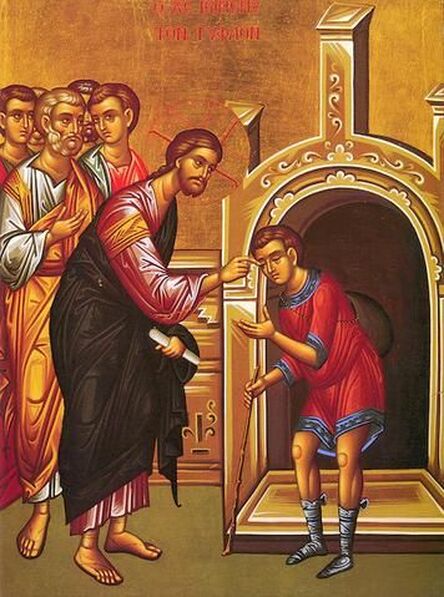During this service, we also hear 7 epistle and 7 gospel readings. Of the Gospel readings, 6 of them have to do directly with the healing ministry of Jesus Christ. Jesus cleansed people possessed by demons, He healed the sick and infirm, and commanded that His disciples do the same. However, this healing ministry is not limited to diseases of the body. It is also meant for diseases of the soul. In the last gospel reading (Mt. 9:9-13), Christ says, “Those who are well are in no need of a physician, but those who are sick. But go and learn what this means: ‘I desire mercy and not sacrifice.’ For I did not come to call the righteous, but sinners to repentance.”
The only gospel lesson that does not deal directly with the healing ministry of Christ is the 5th lesson – the parable of the 10 Virgins. As we heard on Holy Monday night, this parable was given to us so that we may always be prepared to enter into the Kingdom of Heaven, because we will never know when that moment will come. Part of preparing ourselves for the Kingdom is to cleanse ourselves of everything impure in our souls and bodies. Holy Unction is another way we can be healed of diseases of the soul and body and further prepare ourselves for the Kingdom to come. Something we should always remember is that sin is a poison. It invades every part of our mind and body. The thought that leads to sin also leads to improper thinking in areas not directly associated with the sin itself. The act of sin affects our bodies as well, particularly through guilt and stress. The really insidious aspect of sin is that when we are ravaged by it, we are contagious. We end up poisoning others around us – even if we do not intend that to happen. Sometimes that contagion is spread to others and they commit sins because of what we have done. In other cases, the sin damages others (to varying degrees of intensity) by causing them harm, grief, embarrassment, etc. that they did not bring upon themselves. In this sense, it is interesting that all sacraments in the church are public acts – because the root need for each of the sacraments is healing of soul and body – and therefore shows how the sin of an individual affects the whole community (even Confession is, in a sense, public – because the priest, as the spiritual leader of the community, bears witness to the confession). Conversely, the healing power of Christ, when it heals an individual, helps to heal the entire community. Thus, in every communal act of faith (sacrament) we have the all-important prayers asking for remission of sins and healing of soul and body. Another aspect of the sacrament of Holy Unction that is crucial to our understanding is: the healing of our soul is paramount, i.e., more important than the healing of the body. It is possible to eaten up by bodily ailments, and yet our souls may be completely healthy and at peace. Take for example, the martyrs. They gave up their bodies to all kinds of terrible things – and their bodies certainly suffered. But their souls were magnificently healthy despite all else. As well, there are examples of numerous saints, and even loved ones of ours that may easily come to mind, who had suffered greatly from some bodily ailment or ailments. Yet, their souls were healed and they were able to endure all else. The accounting we have to make at the Judgment is about the soul and its condition. This does not mean that the body is bad or unholy – it indeed is good and meant for holiness as we hear in Genesis at the creation. Nonetheless, for the time being (until the Second Coming) our bodies are subject to decay and death, while the soul is always meant to remain healthy and live eternally. During the service, you will often see that the bowl containing the oil is resting on flour. This is a pious tradition in our Church that on Holy Wednesday, or indeed anytime and Unction service is offered (and the Unction service can be offered throughout the year) we bring in flour so that it can be blessed and made into the prosphoro for following morning’s service (during Holy Week, this would be the Vesperal Divine Liturgy on Holy Thursday morning which commemorates the Last Supper and Christ’s time in prayer in the Garden of Gethsemane just prior to His arrest and passion). With Love in Christ, +Fr. Nick Comments are closed.
|
AuthorsMessages written by the clergy of our parish. Archives
May 2021
Categories
All
|
© 2023
Saint Nicholas Greek Orthodox Church
3109 Scio Church Road, Ann Arbor, MI 48103
Phone: (734) 332-8200
Fax: (734) 332-8201
Saint Nicholas Greek Orthodox Church
3109 Scio Church Road, Ann Arbor, MI 48103
Phone: (734) 332-8200
Fax: (734) 332-8201


 RSS Feed
RSS Feed
